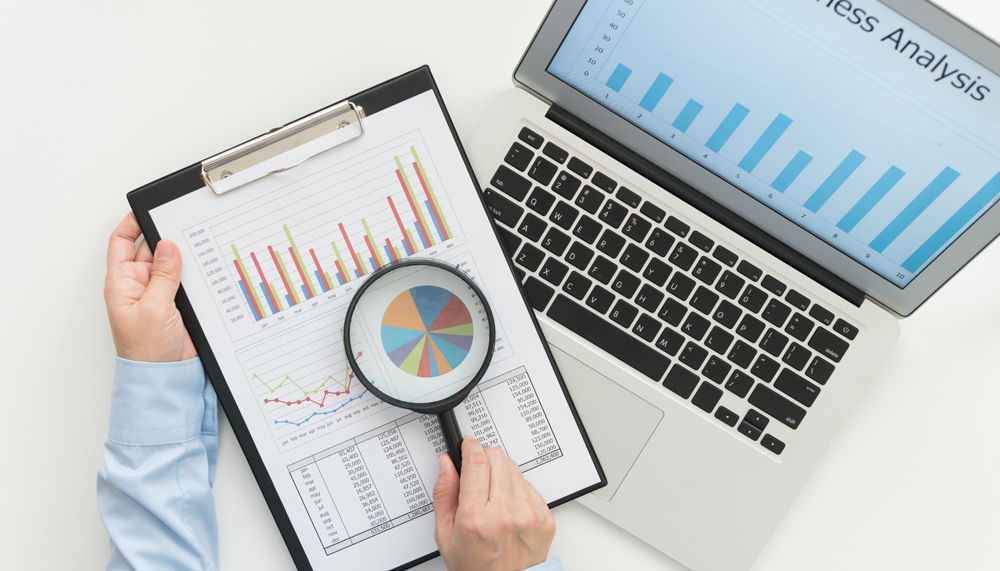Digital Accounting: Mastering The Transition In 5 Simple Steps
1. What is digital accounting?
Digital accounting refers to the use of electronic systems to manage financial data, workflows, reporting, document retention, and regulatory compliance. Instead of relying on manual entry and endless spreadsheets, financial documents are captured, processed, and stored digitally in a secure cloud-based or on-premises platform.
These systems centralize all financial records, allowing authorized users to access invoices, receipts, and accounting workflows from the office, at home, or on the go. With automation built in, digital accounting streamlines everyday processes such as invoice processing, expense management, audits, and month-end close, while ensuring payments are made on time and records remain compliant with regulatory standards.

2. Why manual accounting is no longer enough
Manual accounting has supported businesses for decades, but today it slows operations down.
Manual entry is time-consuming, error-prone, and difficult to scale.
Shifting from traditional workflows to digital systems allows organizations to operate more efficiently, support growth, and stay competitive in a fast-changing business environment.
3. How digital accounting works
Digital accounting is powered by cloud-based or on-premises systems that centralize financial data. Its core strength is integration:
- Document management system (DMS)
- Payroll
- ERP systems
- Accounting software such as Xero, Sage, or QuickBooks
This ecosystem eliminates double data entry and enables automated data transfers.
Artificial intelligence and machine learning further enhance automation through intelligent document indexing, which extracts key information such as sender, amount, dates, and invoice details.
Digital accounting platforms also provide meaningful financial insights, helping businesses analyze performance trends and pinpoint improvement opportunities.
4. Benefits of adopting a digital accounting system
a. Increase efficiency and save time
Real-time automation accelerates data processing and helps teams make decisions using up-to-date financial insights.
b. Reduce human error
Automated workflows remove the need for repetitive manual entry, improving accuracy and reducing costly mistakes.
c. Enhance data security
Digitized documents are encrypted, backed up routinely, and protected against physical risks like fire, water damage, or loss.
d. Automated backups for business continuity
Systems automatically back up financial data, ensuring critical information is preserved and easily restored.
e. Automate invoice processing
Capabilities like e-invoice automation, reconciliation, and digital approvals dramatically reduce processing time and workload.
f. Reduce operational costs
By eliminating paper-based accounting workflows, businesses save on printing, physical storage, and manual labor.
g. Scale with ease
Cloud-based solutions adapt as your organization grows, without needing manual configuration or process redesign.
h. Improve sustainability
Digital accounting reduces paper usage and supports environmental goals, contributing to a greener, paperless office.

5. How document management enables digital accounting

A document management system (DMS) provides the foundation for digital accounting by organizing, storing, and retrieving financial documents in a structured manner.
When an invoice enters the system—digitally or via scanning—the data is indexed, filed, and synced automatically with your ERP or accounting software.
Version control ensures accuracy while maintaining compliance with regulatory standards.
Access controls, encryption, and authentication safeguard confidential financial information.
6. Five steps to digitizing your accounting functions
a) Assess existing processes and identify business needs
b) Choose the right digital accounting platform
- Robust digital workflows
- Process mapping tools
- Web form integration
- Mobile access for remote teams
- Electronic signatures
- Cloud or hybrid deployment options
c) Migrate documents and test workflows
d) Train employees and stakeholders
e) Continuously update and audit the digital system
Document changes, track system owners, and refine processes to match evolving business needs.
7. Embracing the future of financial management
News & Events
Keep up to date
- 18Dec
Ricoh recognised as a Top 5 global AV Integrator in SCN Top 50 Systems Integrators 2025
- 11Dec
Ricoh Recognised as a Sustainability Leader in Quocirca's 2025 Report
- 07Nov
Ricoh Pro C7500 Gold Toner Brings Sustainable Luxury to Sun PhuQuoc Airways’ Travel Guide
- 31Oct
Ricoh perovskite solar cells installed on Japan Aerospace Exploration Agency cargo transfer spacecraft1 HTV-X1
